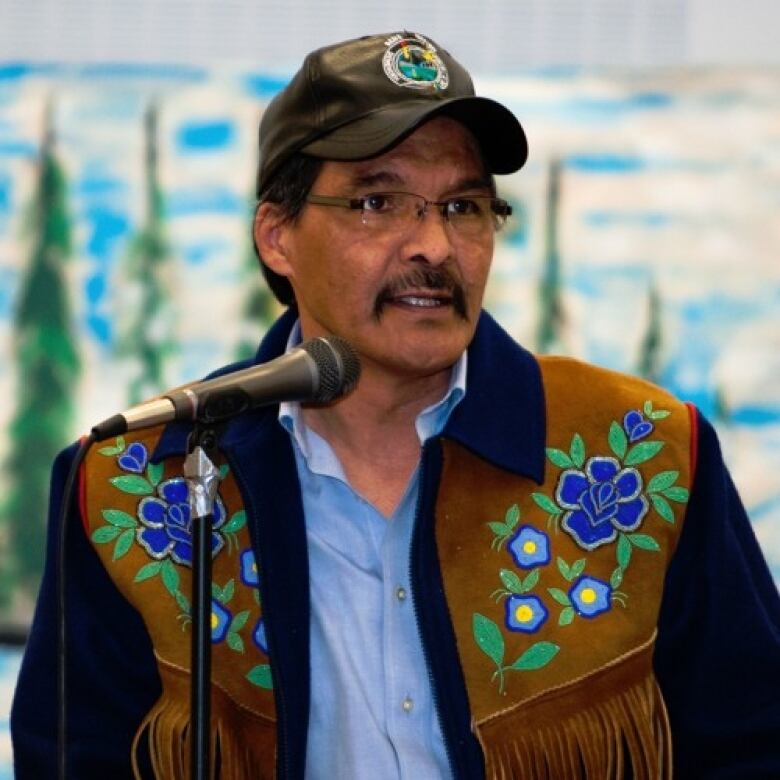Fort Good Hope seeks clients for 1st transitional men's shelter
'We had to respond, because ... everything is affected just due to lack of housing,' says organizer

A non-profit society formed to tackle the housing crisis in Fort Good Hope, N.W.T., is getting ready to welcome the first clients to a new transitional men's shelter.
The K'asho Got'ine Housing Society issued a call this week for referrals to the new shelter on Facebook, and on posters all over town.
Arthur Tobac is a leader with the K'asho Got'ine Housing Society, which was created in 2017 to help tackle homelessness and overcrowding in the community of roughly 500 people.
"We had to look at it and we had to respond to it because, like, everything is affected just due to lack of housing," Tobac said. "Education is affected, lifestyle is affected. You need enough housing, you need enough space for everybody."
The men's transitional shelter will occupy a three-bedroom house donated by the N.W.T. Housing Corporation. Service Canada provided initial funding, paying for renovations to the house.
Operational funding is being provided by Indigenous Services Canada and the territorial government. That money will be used to pay for locals to staff the transition home. Initially, they'll be supported by visiting contractors, who will provide support and training.The home's manager will also be trained locally.
There should be room for three or four clients, to start.

The shelter will provide more than just a place to live.
Prospective residents must be 19 years old, willing to achieve sobriety and be "willing to work consistently with the shelter manager to develop and maintain a personal plan for setting short-term and long-term goals and strategies," the poster reads.
"It is geared towards moving people to wellness and to healthy lifestyles," said Tobac. "And then transitioning them to owning homes further down the line."
Tobac, whose day job is with Ne'Rahten Developments Ltd., the business arm of the Yamoga Land Corporation, says he got involved in the project partly because the housing crisis was so bad that people were asking to rent homes reserved for corporate staff housing.

A survey conducted by the society in 2017 found 50 of the 500 people who live in the community were homeless.
"The studies that we looked at all indicated that without a home, without a place to live or adequate housing, the social side of things begins to build up," said Tobac. "The use of alcohol or drugs, overcrowding disagreements, anger."
The society still hopes to work toward opening a women's or family shelter, Tobac said.
"We needed something to start off with. We needed a program that would actually work with the community, do something with homelessness, trying to incorporate wellness and trying to give some hope to people that are in the system that are probably waiting for something to happen."
Application forms are available at the RCMP detachment, Roman Catholic mission, health centre, and the local housing authority, or from community elder Florence Barnaby.
The N.W.T. Housing Corporation did not respond to an interview request for this story.
Corrections
- A previous version of this story stated Tobac said that a manager would be brought in from the South. In fact, the manager will be trained locally. It has also been updated to clarify Service Canada's role in funding the project, and added information about the source of operational funding.Jan 22, 2020 9:24 AM CT












_(720p).jpg)


 OFFICIAL HD MUSIC VIDEO.jpg)
.jpg)



























































































